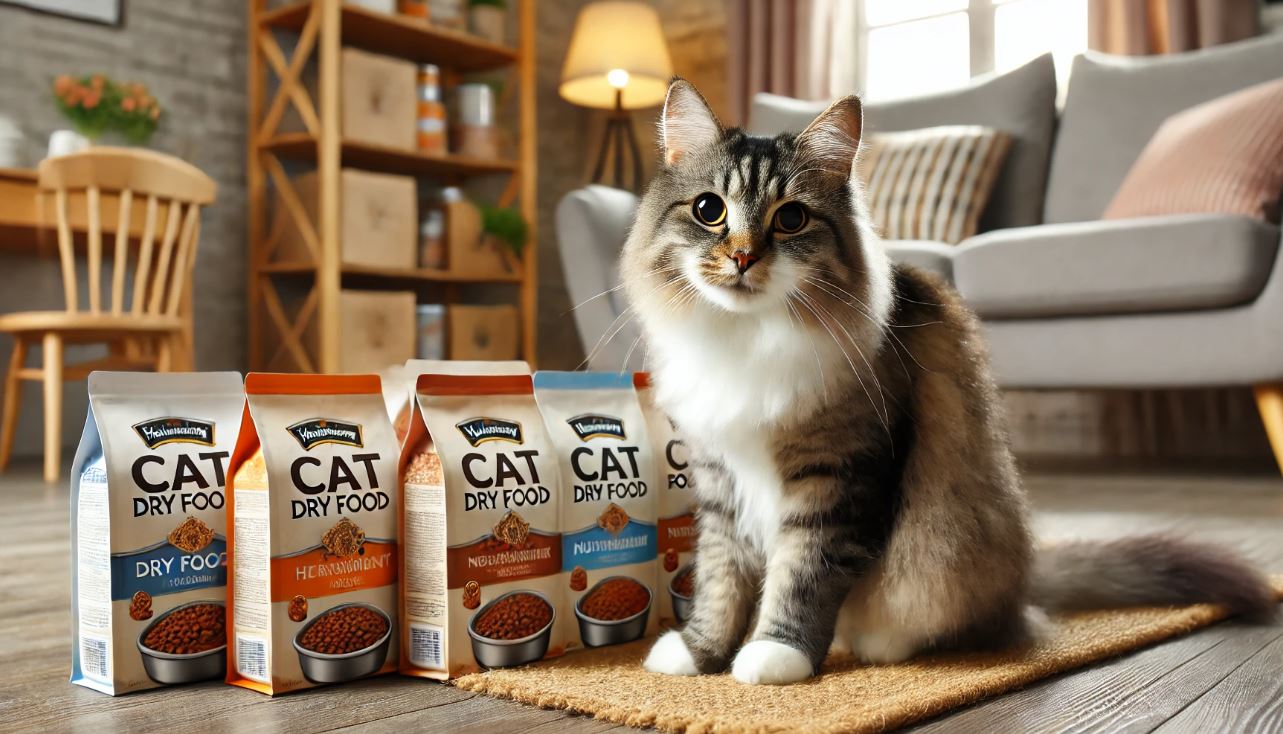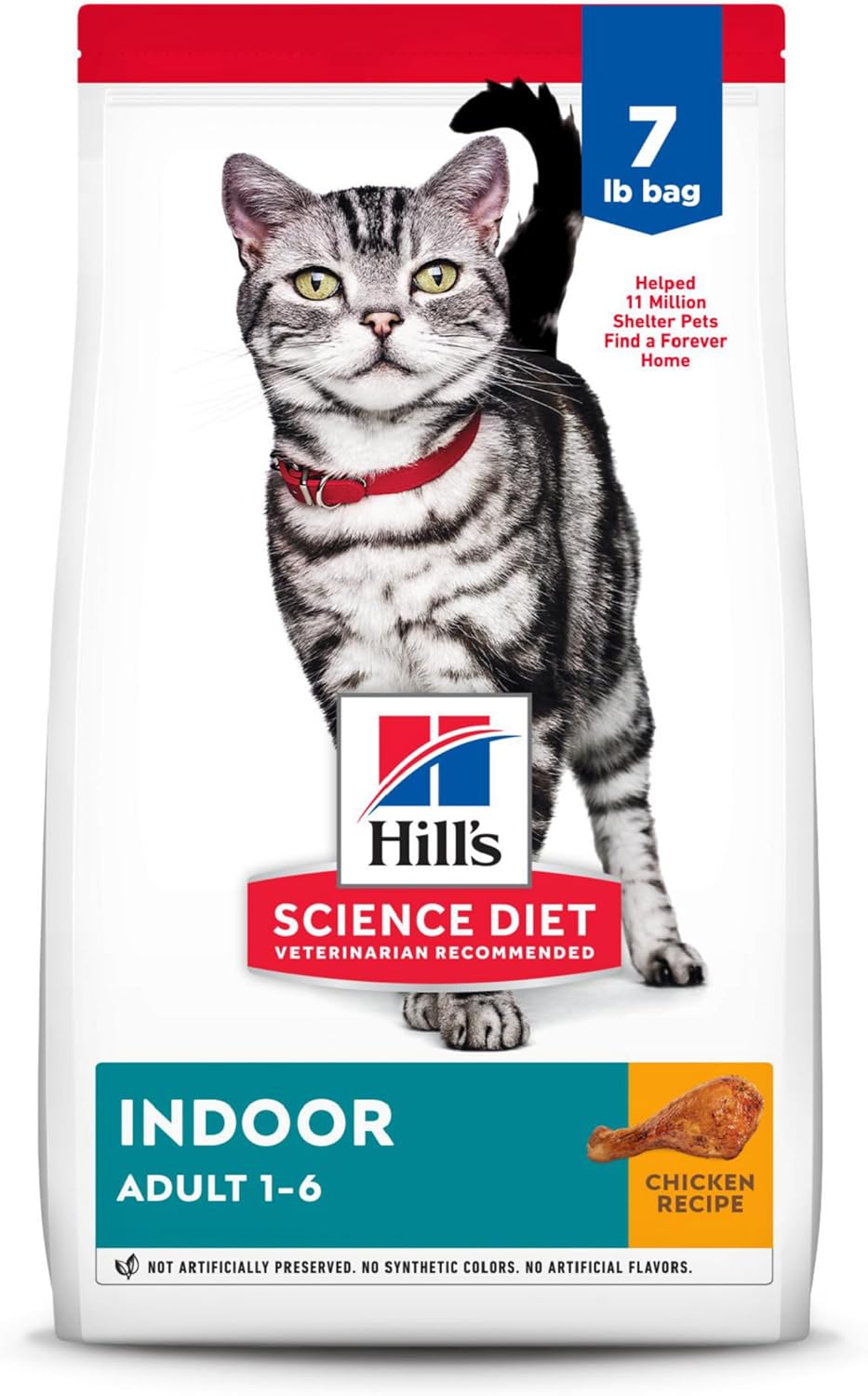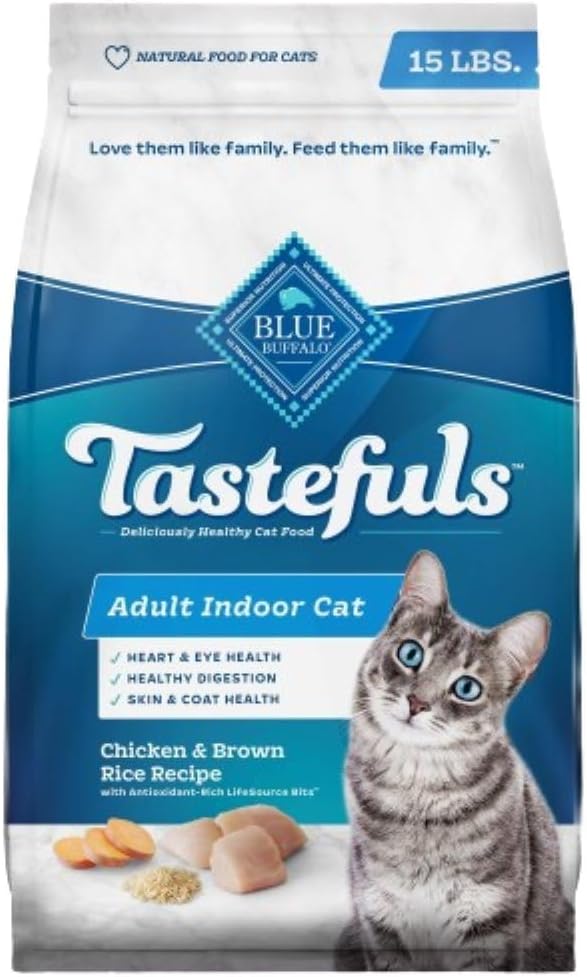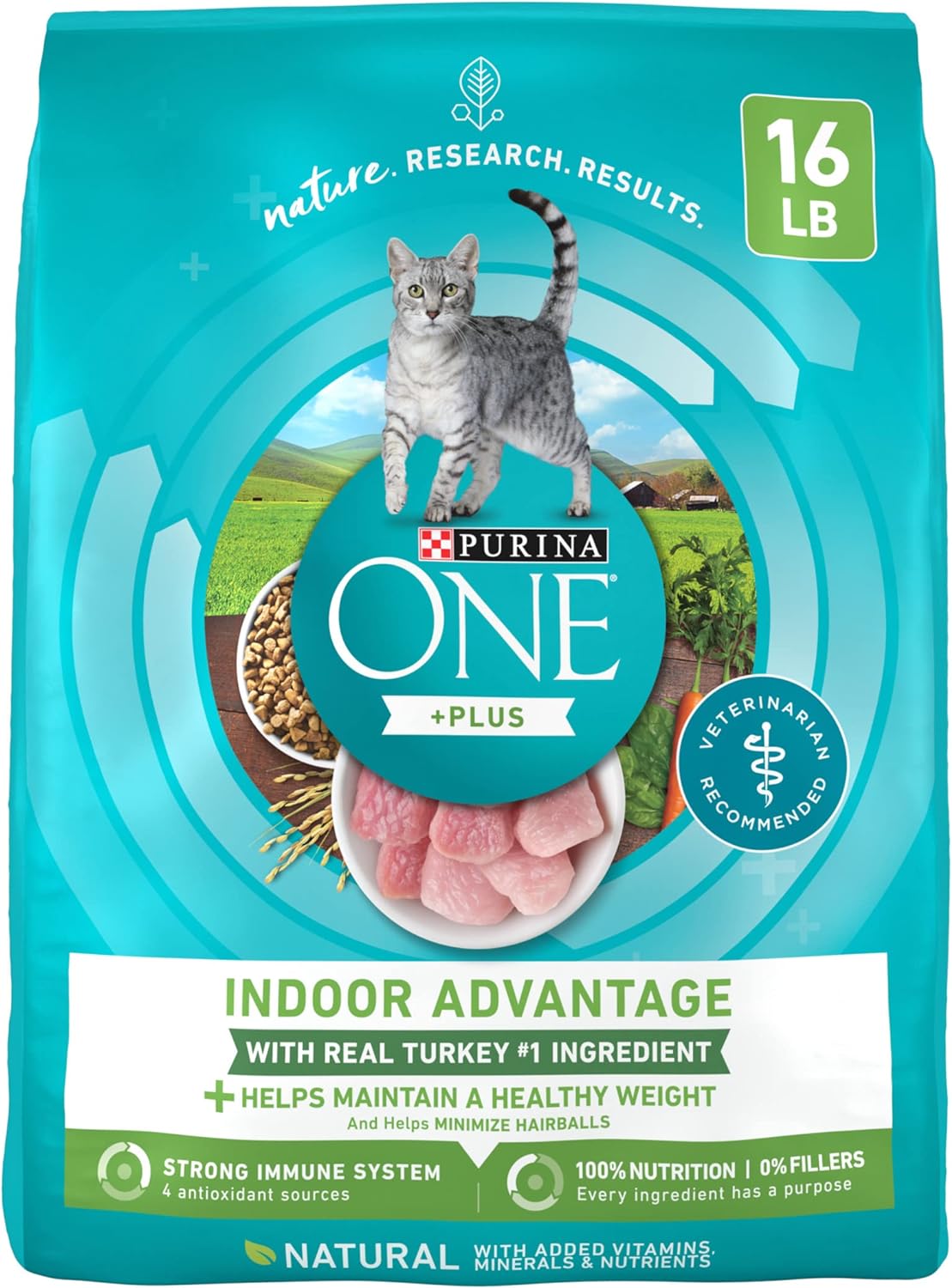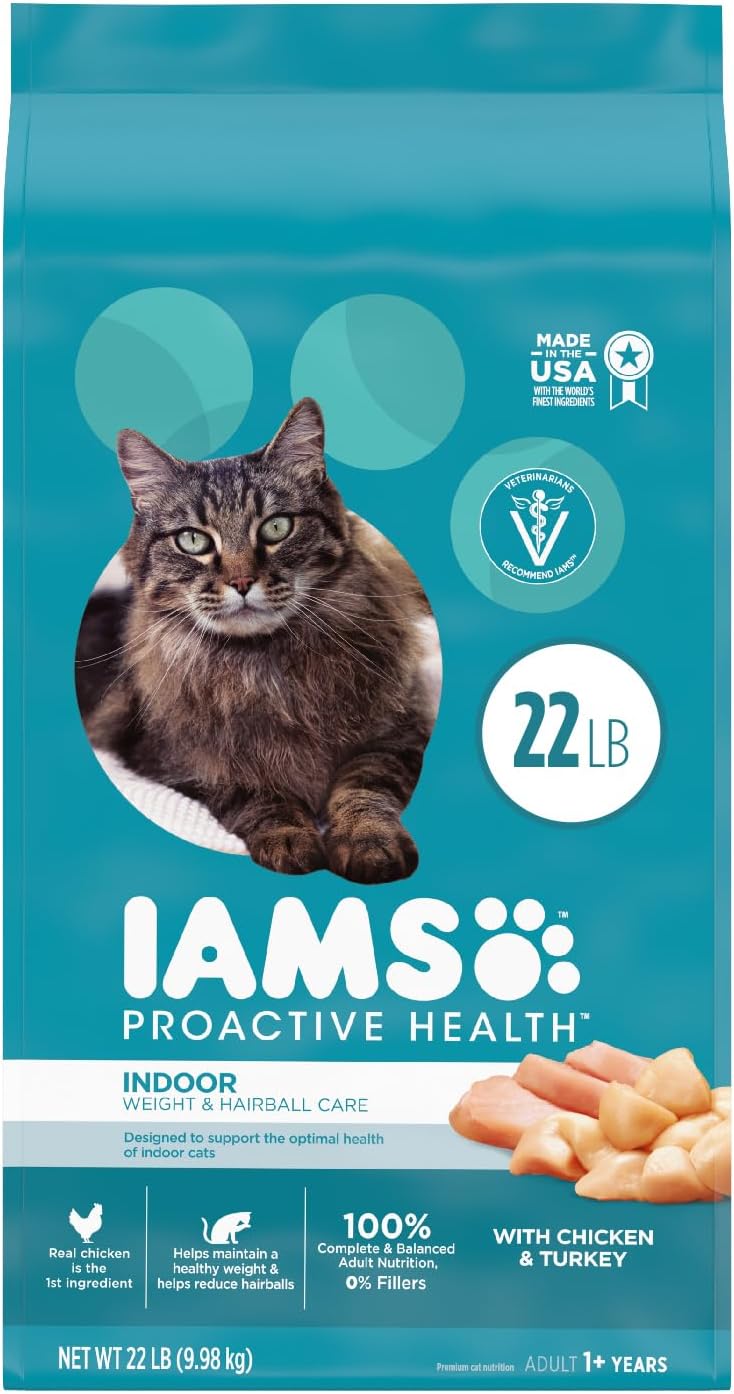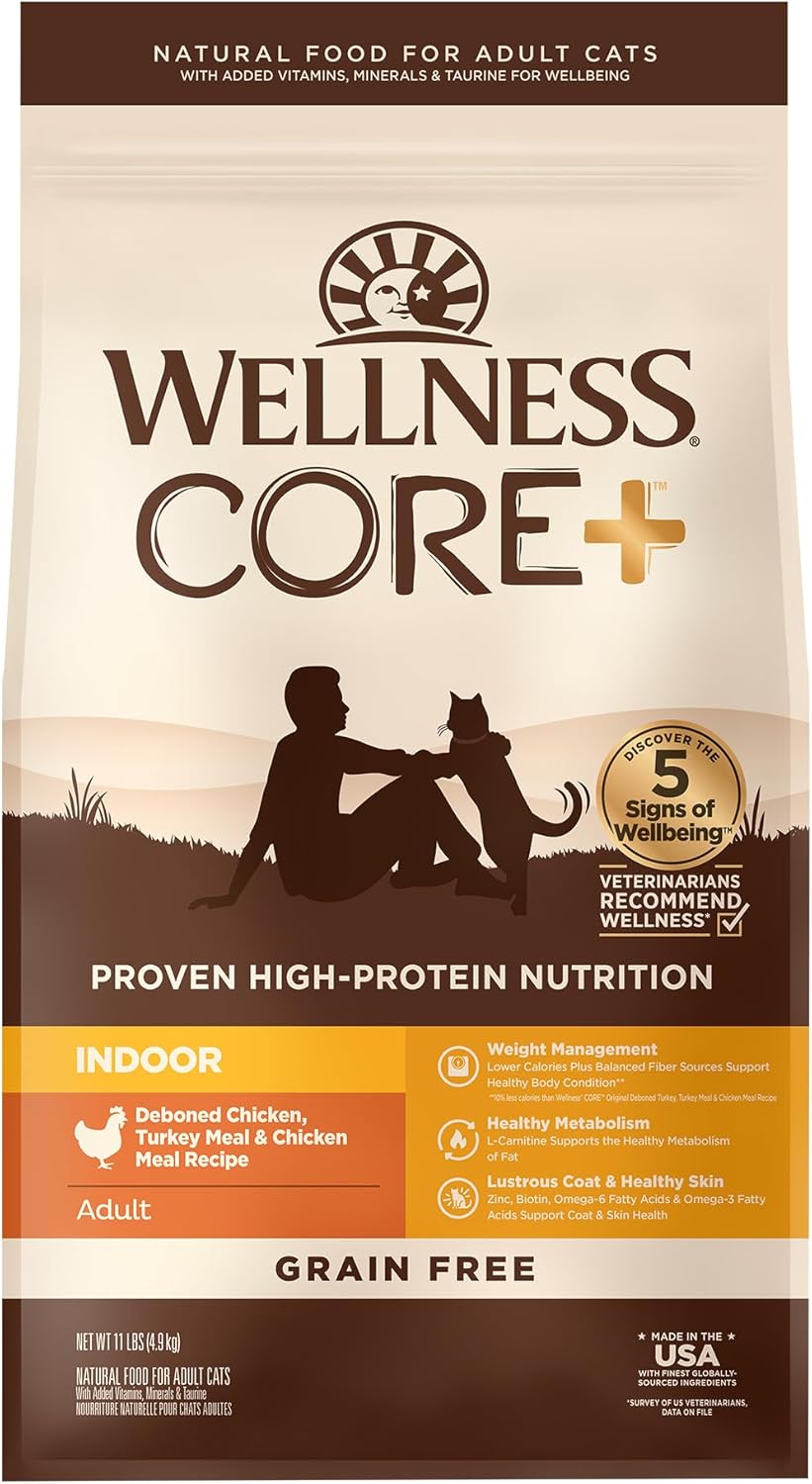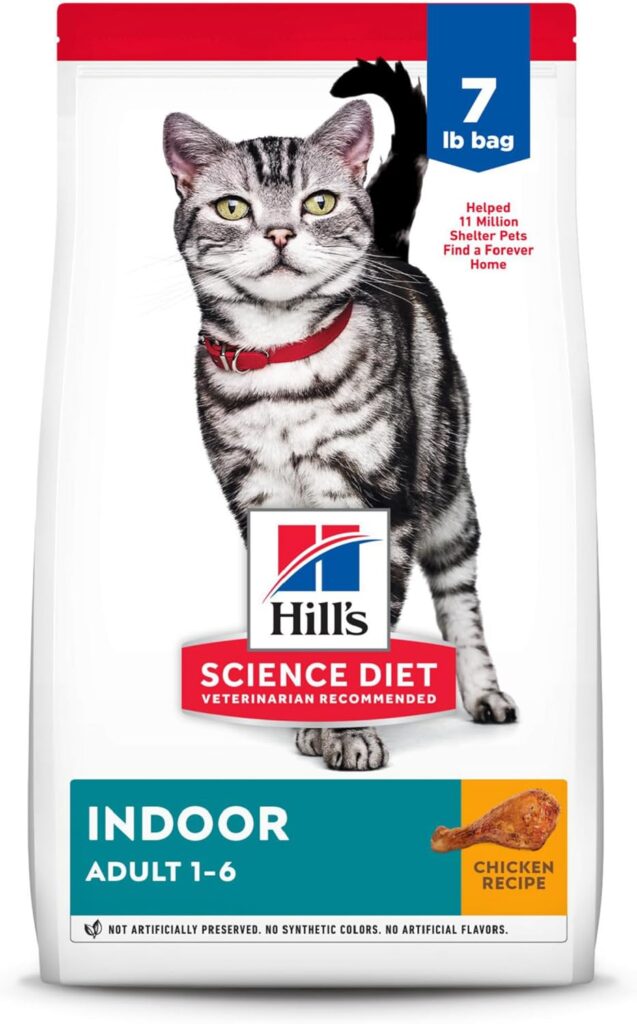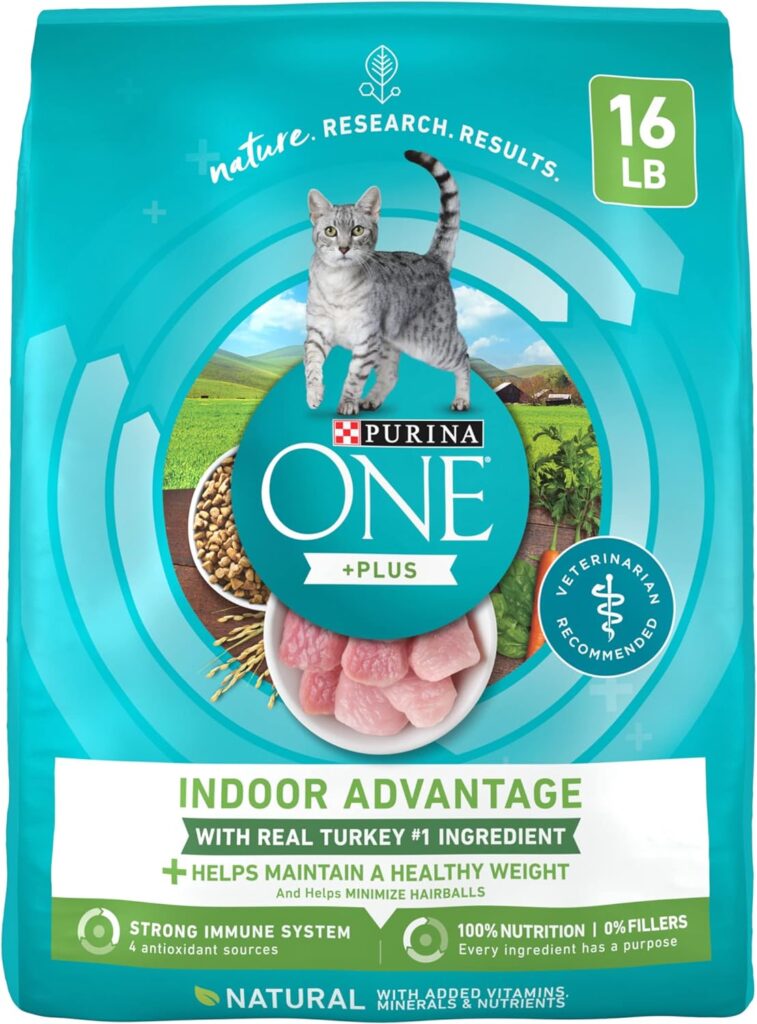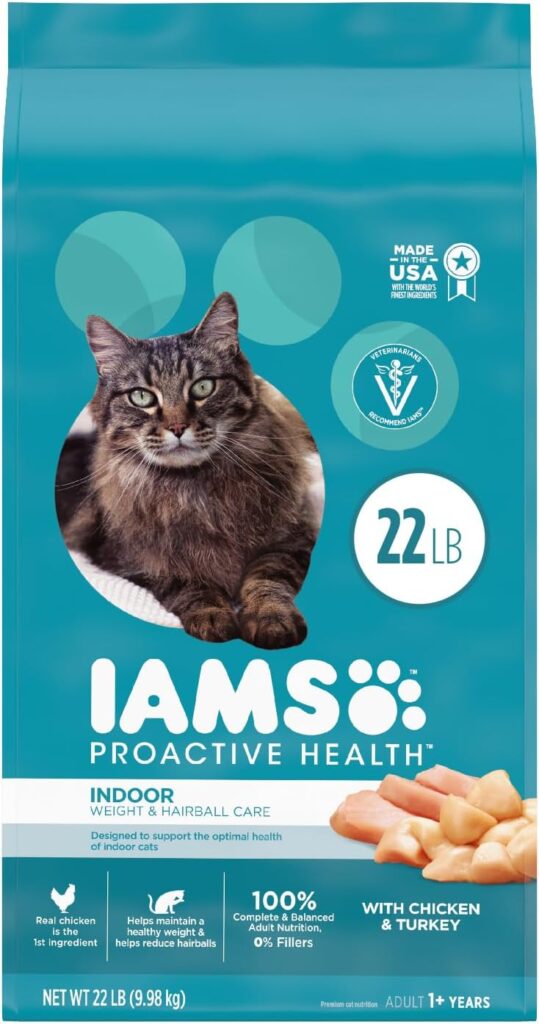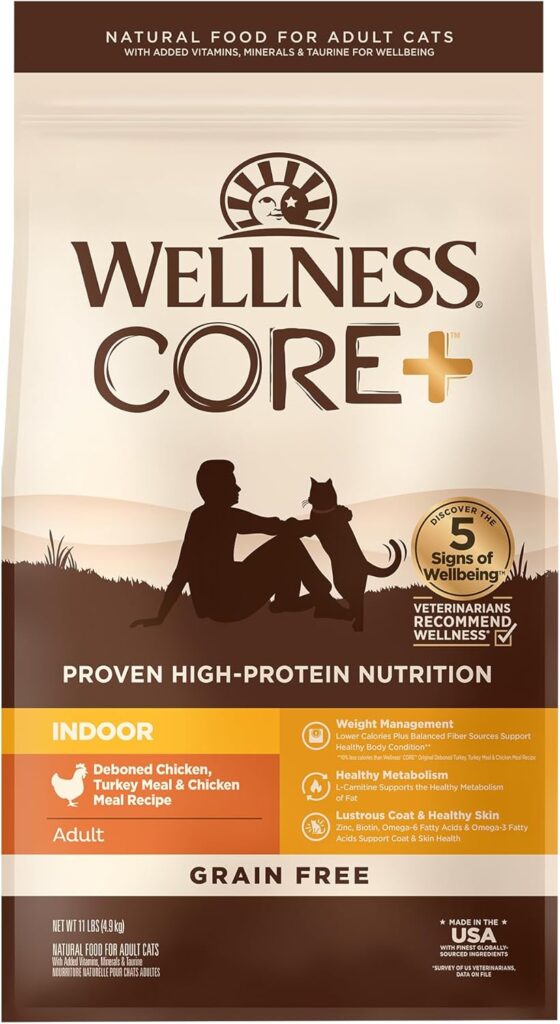I'm a participant in the Amazon Services LLC Associates Program, an affiliate advertising program designed to provide a means for me to earn fees by linking to Amazon.com and affiliated sites.
Finding the perfect dry food for your indoor cat is crucial for their health and happiness. With countless options on the market, it’s essential to choose a product that meets your feline’s nutritional needs while also being tasty enough for them to enjoy. In this article, we delve into the best cat dry foods for indoor cats available today, helping you make an informed decision for your furry friend.
Product | Key Features | Pros | Cons | Price | |
|---|---|---|---|---|---|
Digestive support, antioxidants | High-quality ingredients, supports weight | Expensive, taste may not appeal | |||
Real meat, whole grains | No artificial additives, promotes healthy coat | High calories, pricey | |||
Real turkey, affordable | Supports muscles, affordable | Includes fillers, potential sensitivities | |||
Hairball control, fiber for digestion | Affordable, widely available | Contains by-product meals, not grain-free | |||
Grain-free, high-protein | Probiotics, supports lean mass | Expensive, taste issues |
Key Takeaways
- Indoor cats require specific nutrients to maintain their health.
- The best cat dry foods provide balanced nutrition, are palatable, and support overall well-being.
- This article compares the top five models currently available, highlighting their pros and cons, differences, and overall value.
Pros and Cons of Top Cat Dry Foods for Indoor Cats
1. Hill’s Science Diet Indoor Adult Cat Food
Pros:
- High-quality ingredients
- Supports healthy digestion and weight
- Contains antioxidants for immune support
Cons:
- More expensive than some other brands
- Some cats may not like the taste
2. Blue Buffalo Indoor Health Natural Adult Dry Cat Food
Pros:
- Made with real meat and whole grains
- Free from by-product meals and artificial additives
- Promotes healthy weight and coat
Cons:
- Slightly higher in calories
- Can be pricier
3. Purina ONE Indoor Advantage Adult Dry Cat Food
Pros:
- Affordable
- Contains real turkey as the first ingredient
- Supports strong muscles and healthy weight
Cons:
- Includes some fillers
- Some cats may develop food sensitivities
4. IAMS Proactive Health Indoor Weight & Hairball Control Dry Cat Food
Pros:
- Affordable and widely available
- Helps control hairballs and maintain healthy weight
- Contains fiber for digestive health
Cons:
- Contains by-product meals
- Not grain-free
5. Wellness Core Grain-Free Indoor Cat Food
Pros:
- Grain-free, high-protein formula
- Supports lean body mass and weight maintenance
- Includes probiotics and fiber for digestive health
Cons:
- More expensive
- Some cats may not like the taste
Major Differences Between Top Cat Dry Foods
While all five cat dry foods cater to indoor cats, they differ in several key aspects:
- Ingredients: Wellness Core and Blue Buffalo focus on high-quality, grain-free formulas, whereas Hill’s Science Diet and IAMS include grains but prioritize digestion and weight control.
- Price: Purina ONE and IAMS are more budget-friendly, while Wellness Core and Blue Buffalo are on the higher end.
- Special Features: IAMS and Hill’s Science Diet emphasize hairball control and digestive health, while Blue Buffalo and Wellness Core focus on premium ingredients and overall wellness.
Recent Developments in Cat Nutrition: Best Cat Dry Food for Indoor Cats
As of July 2024, there have been significant advancements in the field of cat nutrition. New studies emphasize the importance of high-protein, low-carb diets for indoor cats to maintain optimal health. Brands are increasingly focusing on natural ingredients and transparent sourcing to meet consumer demands for healthier, sustainable options.
Top Experts in Cat Nutrition
Dr. Jean Hofve
Dr. Jean Hofve is a renowned veterinarian specializing in feline nutrition. She advocates for natural, species-appropriate diets and has published numerous articles on the benefits of holistic cat food options.
Dr. Lisa Pierson
Dr. Lisa Pierson, DVM, is an expert in feline nutrition and the creator of CatInfo.org. She provides valuable resources and insights into the best dietary practices for cats, emphasizing the importance of hydration and raw diets.
Dr. Karen Becker
Dr. Karen Becker is a proactive and integrative wellness veterinarian. She frequently discusses the significance of species-appropriate nutrition for cats and has a strong following for her advice on holistic pet care.
Buyer’s Guide
When selecting the best dry food for your indoor cat, consider the following factors to ensure you choose a product that meets their nutritional needs and preferences.
Nutritional Content
Look for dry foods that provide balanced nutrition with high-quality protein sources, essential vitamins, and minerals. Indoor cats require specific nutrients to support their less active lifestyle and to prevent weight gain.
Ingredients
Opt for products that use real meat as the first ingredient and avoid those with fillers, artificial additives, and by-product meals. Grain-free options can be beneficial for cats with sensitivities.
Brand Reputation
Choose reputable brands known for their commitment to quality and safety. Check for recalls and customer reviews to ensure the product’s reliability.
Special Formulas
Some dry foods are formulated to address specific needs like hairball control, weight management, and digestive health. If your cat has particular health concerns, these specialized formulas can be highly beneficial.
Price
While higher-priced products often offer better quality, affordable options can still provide good nutrition. Balance your budget with the nutritional needs of your cat to find the best value.
What Makes These Cat Foods Best for Indoor Cats?
The best cat dry foods for indoor cats share several characteristics that make them stand out:
Balanced Nutrition
Indoor cats typically have lower activity levels, so their food should be formulated to prevent weight gain while providing all essential nutrients. These foods often include high protein content to maintain muscle mass and moderate fat levels to manage weight.
Digestive Health
Indoor cats can benefit from formulas that support digestive health. Ingredients like fiber, prebiotics, and probiotics help maintain a healthy digestive system, reducing issues like hairballs and constipation.
Palatability
Cats can be picky eaters, so the best dry foods also focus on taste. High-quality ingredients and natural flavors ensure that even the fussiest cats will enjoy their meals.
Health Benefits
Look for dry foods that offer additional health benefits, such as improved coat condition, enhanced immune support, and better urinary tract health. These added advantages ensure your indoor cat remains healthy and happy.
Advantages and Disadvantages of Dry Food
Advantages
Convenience Dry food is easy to store and measure, making feeding time simple and mess-free. It doesn’t spoil quickly, allowing you to leave it out for your cat to graze on throughout the day.
Dental Health The crunchy texture of dry food can help reduce plaque and tartar buildup, contributing to better dental health for your cat.
Cost-Effective Dry food is generally more affordable than wet food and offers a longer shelf life, making it a cost-effective option for many pet owners.
Disadvantages
Hydration Dry food contains less moisture than wet food, which can be a concern for cats that don’t drink enough water. Ensuring your cat stays hydrated is essential to prevent urinary tract issues.
Quality Variability The quality of dry cat food can vary significantly between brands. Some may contain fillers, artificial additives, and low-quality ingredients, which can negatively impact your cat’s health.
Overeating Because dry food is calorie-dense and can be left out all day, there’s a risk of your cat overeating, which can lead to obesity and related health problems.
By understanding these aspects, you can make a well-informed decision on the best dry food for your indoor cat, ensuring they receive optimal nutrition and care.
Author: Pets Pal
Pets Pal is an expert in the field of pet nutrition, providing valuable insights and advice for many years. For more information, visit our other articles on Best Dental Treats for Dogs, Best Battery Operated Cat Water Fountain, Greenies vs Whimzees, and Greenies vs Dentastix.
